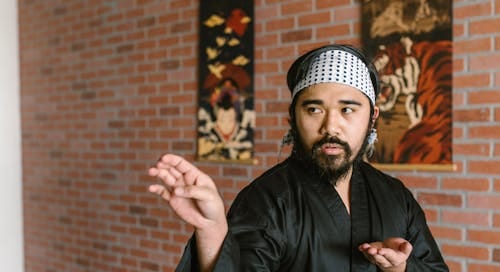Writing is a martial art – master precision, timing, and controlled impact
Write with discipline and deliver with power
Think like fighters
What do Steve Martin, Stephen King and Taylor Swift have in common?
At first glance, they belong to entirely different worlds, comedy, literature, and music. But beneath the surface, they share a mastery of one crucial skill which we could apply to our writing. I’ll cover that below.
First, let’s focus on applying the essence of martial arts to your writing.
Most people see writing as a soft skill, an expressive, creative process that flows naturally from inspiration. But the truth is, writing is as much discipline, control, and strategy as creativity.
Much like a martial artist, a skilled writer doesn’t throw wild punches in the dark. Every word, every sentence, every paragraph is a calculated strike—meant to land with precision, at the right moment, with just the right amount of force.
If you want your writing to hit harder, you need to think like a fighter. Master these three core elements:
Precision – Every word must have a purpose. No wasted movements.
Timing – Knowing when to strike. Delivering the message at the right moment.
Controlled impact – Hitting hard without excess, making every blow count.
Let’s look at how to apply them to your writing.
📍Precision
Every word must have a purpose.
A martial artist doesn’t waste energy on unnecessary movements. Every strike is intentional, aimed at a target, with the right force behind it.
Writing works the same way. Sloppy writing is like flailing punches, it weakens the message and tires out the reader.
Great writing is sharp, deliberate, and effective. The best writers cut the excess and keep only what matters.
Look at these examples:
Hemingway’s economy of words – Short, impactful sentences with no fluff.
Haiku poetry – Using minimal words to convey deep meaning.
Journalistic writing – Headlines and articles where every word must earn its place.
Even after months of writing, I still catch myself with fluff. Unnecessary adjectives, adverbs, and filler phrases dilute the impact. The more precise your words, the stronger your writing.
Example:
Flabby: "She walked extremely slowly towards the door, feeling incredibly nervous."
Precise: "She crept to the door, her hands shaking."
Less is more. Precision makes your writing sharp, deliberate, and powerful.
⏱️ Timing
A great fighter doesn’t just throw punches at random. They wait for the perfect opening, then strike with precision. Writing follows the same principle.
The best writers know when to build tension, when to pause, and when to deliver the knockout punch.
Now, let’s return to the famous people I mentioned above.
Steve Martin honed his comedy over decades, perfecting joke timing. A second too early or too late, and the impact is lost. And he became a legend.
“A sudden blackness came over him, dousing his good spirits like sand on fire. He had been subject to these since (his mind tried to speak Miranda's name and he would not let it) the bad time and was used to fending them off, but this one swept over him with a savage power that was dismaying.” Stephen King mastered suspense, delaying reveals to keep readers hooked.
Taylor Swift reinvents herself with each album, outworking and outthinking her competition while staying true to her artistry. She is the sole writer of 124 songs (as of 2024) and co-wrote 100+ others. She understands rhythm, building momentum in her music, making every beat land at just the right moment.
Notice the pattern? It’s all about timing for them.
So, how do you improve timing in your writing?
Read your work aloud. Where does it feel rushed? Where does it drag? Adjust the rhythm so that your words flow smoothly and your key points land with impact.
Bad timing: "The door creaked open. He stepped inside and saw the body."
Good timing: "The door creaked open. He stepped inside. Silence. Then, his breath caught. A body lay sprawled across the floor."
Pauses create suspense. Rhythm builds tension. Master timing, and your writing will captivate.
🤜 Controlled impact
Why are the best quotes so powerful? Because they pack a punch in just a few words.
A skilled fighter doesn’t rely on brute force. They channel energy with precision and restraint—delivering maximum impact with minimal effort. Writing should do the same.
Whether you're crafting a long article or a short post, your writing must land with force. That impact can come from:
a compelling headline
a well-placed quote
a striking visual or graphic
a sharp conclusion
Overwriting weakens impact. Underwriting leaves ideas incomplete. The key is controlled force, words that hit hard but don’t overwhelm.
Think James Baldwin’s essays, just 1000+ words, but the sentences piercing like a blade. What about taglines and slogans like – "Just do it." "Think different." Short, but unforgettable. And then Martin Luther King Jr.’s famous speech, "I Have a Dream" which repeated a simple phrase, amplifying its impact without overloading the message.
It’s time to examine our writing and rewrite it to be shorter and stronger.
Example:
Weak impact: "It is very important that you always remember to edit your work so that your message is as clear as it can possibly be."
Strong impact: "Edit ruthlessly. Clarity wins."
Less force, more precision. That’s controlled impact.
The grandmaster mindset – writing with discipline
The greatest martial artists don’t rely on talent alone. They train daily. They repeat drills until movements become second nature.
As writers, we must do the same. Write, edit, refine, until your words strike with discipline and control.
Daily drills – Set a timer for 10 minutes and write non-stop.
Spar with different styles – Try mimicking Hemingway, Atwood, or Murakami.
Edit like a warrior – Cut unnecessary words. Sharpen your message.
The best fighters and the best writers have one thing in common: they train harder than anyone else.
Your words are your strikes
Writing isn’t just an art; it’s a discipline, a strategy, and a precision craft. Just like a martial artist spends years honing their technique, a writer must put in the time, effort, and intention to master their craft.
If you want to write with impact, think like a fighter. Train your words to be sharp, deliberate, and effective. Every sentence should have purpose, every paragraph should land with intention, and every idea should build towards a powerful message.
It won’t happen overnight. The best fighters weren’t born champions, they became champions through relentless practice, discipline, and refinement. Likewise, the best writers aren’t simply gifted, they train harder, edit ruthlessly, and refine their skills daily.
Your words are your strikes. With the right mindset and discipline, you won’t just write, you’ll leave an unforgettable impact.
Now, step into the arena. Pick up your pen. And write like a fighter.
Dare to fail so you can dare to win - Moon AricaExpand your comfort zone here, tell me your thoughts:
Do you like this martial arts analogy?
I’ve been influenced by martial arts books and now movies all my life and it features a lot in my writing. What’s the main theme of your writing?
Articles on writing:
Thanks for reading.









In the library that I inherited, there are several Martial Arts - which never interested me...... Now they do. Thankyou Moon for this new inspirational tangent. Big hug, Maurice
Be Water My Friend ~ Bruce Lee